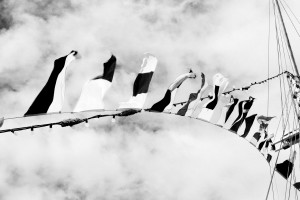On December 1st, Morrissey—of The Smiths fame—won the vaunted Bad Sex in Fiction Award for the "giggling snowball of full-figured copulation" in his novel, List of the Lost. While a brillant lyricist, it seems that Morrissey has some way to go with his fiction. Hopefully this will convince my dad that I can't just write the song for which he already has a title—Leftovers Hangover—and make the "big bucks."
From The Telegraph: http://www.telegraph.co.uk/books/what-to-read/morrisseys-bulbous-salutation-wins-the-2015-bad-sex-award/
As the conventions of spelling in English were solidifying in the mid-19th century, S.P Andrews and Augustus Boyle set out to simplify the process (words initially misspelled in that sentence: 4) (words misspelled in that parenthetical: 2). In their eyes, spelling built an unnecessary obstacle towards literacy. Their solution: the creation of a phonetic language.
From the Awl: http://www.theawl.com/2015/11/giant-despair-of-doubting-castl
In poetry that isn't really poetry (see Kobe's retirement announcement: http://www.theplayerstribune.com/dear-basketball/), someone with far too much time and perhaps too little imagination compiled Trump's speeches into a book of poems.
From The Guardian: http://www.theplayerstribune.com/dear-basketball/
Have you ever proclaimed? What about declared? Hissed? Barked? An easy way to improve your writing is to, with few exceptions, opt for the simple, plain 'said' for a dialogue tag.
But a procession of she explained and he chuckled and I expostulated—the reporting verbs that clog your dialogue when you follow the “never say said” rule—is worse, because they force the reader’s attention away from the content of the writing and onto the writer’s hunt for synonyms.


 In honor of Thanksgiving, a forkful of literary food links.
In honor of Thanksgiving, a forkful of literary food links.
 Fiction from fact and the birth of Lolita: Sally Horner of Camden, New Jersey was abducted in 1948 when she was 11 years old. For almost two years, she was shuttled around the country by her abductor, Frank La Salle, whose convoluted criminal past went unnoticed by friends and neighbors who believed his story - that he was her loving, albeit controlling, father. Although her story didn't leave the local media, it caught the attention of one man who would use the news accounts as a springboard for one of his most important works - Vladimir Nabokov, and his Lolita.
Fiction from fact and the birth of Lolita: Sally Horner of Camden, New Jersey was abducted in 1948 when she was 11 years old. For almost two years, she was shuttled around the country by her abductor, Frank La Salle, whose convoluted criminal past went unnoticed by friends and neighbors who believed his story - that he was her loving, albeit controlling, father. Although her story didn't leave the local media, it caught the attention of one man who would use the news accounts as a springboard for one of his most important works - Vladimir Nabokov, and his Lolita.  Want more time to write? Engineer/entrepreneur Rob Rhinehart suggests that we can add 90 minutes to our day by spending less time on food preparation, consumption and cleanup.
Want more time to write? Engineer/entrepreneur Rob Rhinehart suggests that we can add 90 minutes to our day by spending less time on food preparation, consumption and cleanup.  On new beginnings: The Toast
On new beginnings: The Toast 